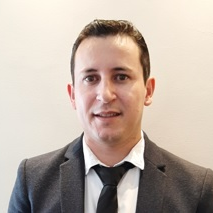Climate Change Education and Sustainability Learning
A special issue of Sustainability (ISSN 2071-1050). This special issue belongs to the section "Sustainable Education and Approaches".
Deadline for manuscript submissions: closed (31 July 2023) | Viewed by 33612
Special Issue Editors
Interests: sustainable development goals; the role of universities towards sustainability; climate change education and climate change impacts
Interests: sustainability in higher education; agenda 2030; climate change; education for sustainability and sustainable cities
Interests: innovation; environmental, social and governance - ESG in companies and universities; sustainability in higher education; sustainable development goals; climate change and the carbon market
Special Issue Information
Dear Colleagues,
The integration of sustainability into teaching and learning has been discussed in the literature from several points of view, including different methodologies, contexts and institutions. With the emergence of the 2030 Agenda and the Sustainable Development Goals, these topics received even more attention, with education being acknowledged as a key factor for meeting all the goals. Education is also recognized by important frameworks, action plans and associations, such as the United Nations Framework Convention on Climate Change and the Paris Agreement, as fundamental in addressing climate change and empowering all actors as agents of change. In this context, climate change education emerges as a component of environmental education and education for sustainable development and generates knowledge about climate change impacts and mitigation strategies.
In view of the above, this Special Issue is focused on sharing experiences from across the globe on climate change education and sustainability learning. We aim to document case studies, best practices, opportunities and challenges, and connections between the topics to advance research and practice around both climate change and sustainability. In this Special Issue, original research articles and reviews are welcome. Research areas may include (but are not limited to) the following:
- Opportunities and challenges of climate change education;
- Opportunities and challenges of sustainability learning;
- Experiences of climate change learning and action;
- Connections between climate change mitigation and adaptation and sustainability learning;
- Student engagement in climate change-related initiatives;
- Innovative approaches and tools for climate change education and sustainability learning;
- Action and learning opportunities regarding SDG 13;
- Interconnections between the 2030 Agenda and climate change education;
- Local, national and international experiences in climate change education and sustainability learning;
- The role of climate change education and sustainability learning in climate justice.
We look forward to receiving your contributions.
Dr. Amanda Lange Salvia
Dr. Luciana Londero Brandli
Dr. Lucas Veiga Avila
Guest Editors
Manuscript Submission Information
Manuscripts should be submitted online at www.mdpi.com by registering and logging in to this website. Once you are registered, click here to go to the submission form. Manuscripts can be submitted until the deadline. All submissions that pass pre-check are peer-reviewed. Accepted papers will be published continuously in the journal (as soon as accepted) and will be listed together on the special issue website. Research articles, review articles as well as short communications are invited. For planned papers, a title and short abstract (about 250 words) can be sent to the Editorial Office for assessment.
Submitted manuscripts should not have been published previously, nor be under consideration for publication elsewhere (except conference proceedings papers). All manuscripts are thoroughly refereed through a single-blind peer-review process. A guide for authors and other relevant information for submission of manuscripts is available on the Instructions for Authors page. Sustainability is an international peer-reviewed open access semimonthly journal published by MDPI.
Please visit the Instructions for Authors page before submitting a manuscript. The Article Processing Charge (APC) for publication in this open access journal is 2400 CHF (Swiss Francs). Submitted papers should be well formatted and use good English. Authors may use MDPI's English editing service prior to publication or during author revisions.
Keywords
- higher education
- climate action
- education for sustainable development
- sustainable development goals
Benefits of Publishing in a Special Issue
- Ease of navigation: Grouping papers by topic helps scholars navigate broad scope journals more efficiently.
- Greater discoverability: Special Issues support the reach and impact of scientific research. Articles in Special Issues are more discoverable and cited more frequently.
- Expansion of research network: Special Issues facilitate connections among authors, fostering scientific collaborations.
- External promotion: Articles in Special Issues are often promoted through the journal's social media, increasing their visibility.
- Reprint: MDPI Books provides the opportunity to republish successful Special Issues in book format, both online and in print.
Further information on MDPI's Special Issue policies can be found here.







